A pilgrimage to find the God of Cinema – in Switzerland
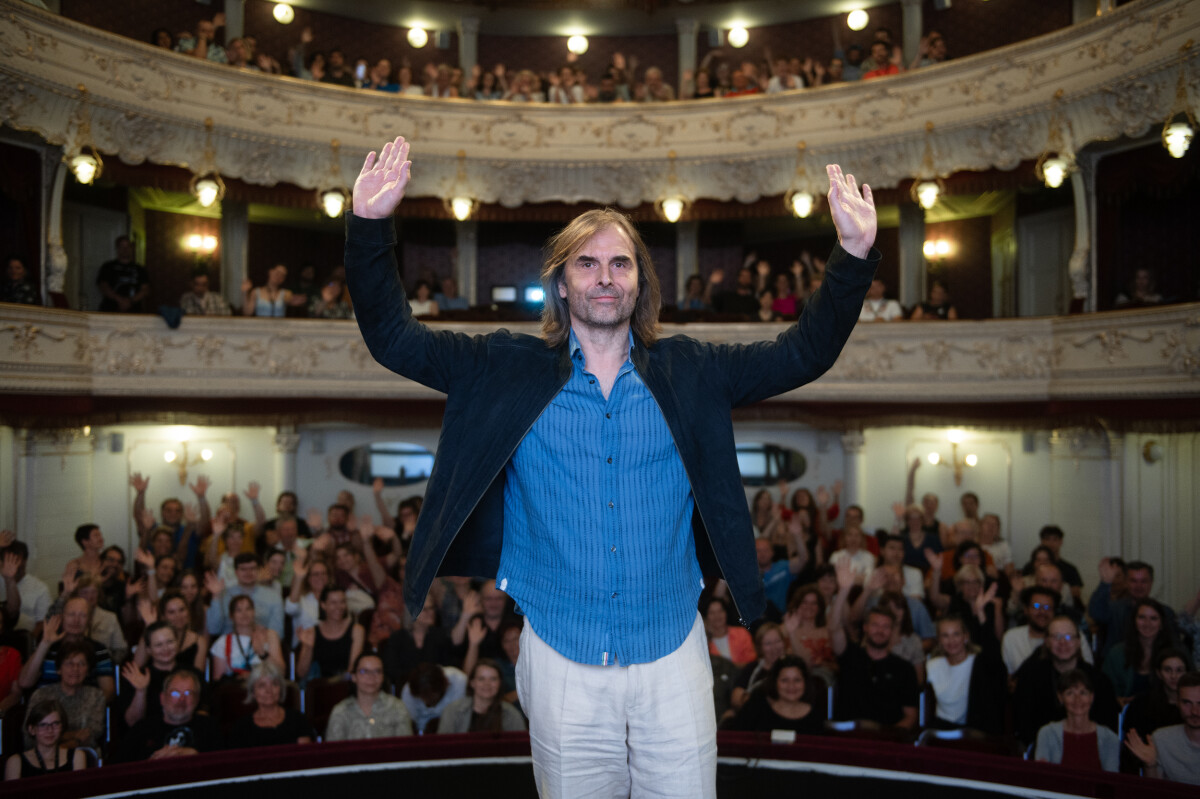
Swiss filmmaker Thomas Imbach’s new work, Say God Bye, is a long hike across Switzerland in search of Jean-Luc Godard. SWI swissinfo.ch met him when the film premiered at Czech film festival Karlovy Vary.
Film legend Jean-Luc Godard left the limelight discreetly but his legacy lives on. On September 13th, 2022, the 91-year-old filmmaker took a cocktail of chemicals, part of an assisted suicide procedure. He died at home in Rolle, Switzerland, with his wife and fellow filmmaker Anne-Marie Miéville by his side.
Godard’s vast contribution to cinema, both in terms of measurable impact and influence as well as sheer volume – 132 films according to the IMDb – ensures his immortality, uncannily fulfilling the famous line spoken by Jean-Pierre Melville in Godard’s breakthrough film, Breathless (1960), “to become immortal, and then die”.
But what is the nature of this immortality? Which of the warring Godards that live on in the minds of cinephiles, critics, curators, and filmmakers around the world will most endure in the popular imagination?
Swiss filmmaker Thomas Imbach, whose career was surveyed in detail in the pages of SWI swissinfo.ch in 2021, took a new approach to grappling with the life, work, and legacy of the man he refers to as the “God of cinema”.
In Say God Bye (2023), which debuted at the Czech film festival Karlovy Vary earlier in July, he places Godard in the ever-unfolding present, as a figure who looms over a cross-country hike by Imbach and his sound man David Charap, from Zurich to Rolle, recorded on everything from iPhone to 35mm.
By his own admission, it was Imbach’s attempt to reconcile the divided reception of Godard as a public figure in Switzerland, particularly between the French and German-speaking parts of the country. Yet it is as much a film about Imbach’s own life and work as it is about that of the most famous figure of the French New Wave.
Like two tributaries winding through a valley towards the same lake, Godard’s and Imbach’s films are here weaved throughout a single narrative, running like a parallel cine-autobiography that provides counterpoint and clarity to a long hike across Switzerland.
In Eastern lands
In Karlovy Vary, I call out to Imbach as he’s striding towards the imposing, brutalist Hotel Thermal. He’s exactly like he is in Say God Bye and like his films: propelling forward, restless to get to the next encounter. Most of the festival’s activities take place inside the Thermal, a giant structure that bears the weight of the festival’s long history as the meeting point of East and West European film cultures; this hotel, even more so than other places in the city, feels unmistakably Eastern.
Imbach is a familiar face at the festival. His last film Nemesis, which shows the destruction of a train station in Zurich and the construction of a prison and police station in its place, was selected for the International Competition in 2020, but the festival was cancelled due to the pandemic. “We kept in touch,” he says. “Now I’m happy that, after that, the new film can premiere here.”
Say God Bye premiered not in the Thermal, where there are several cinemas, including the main screen for the huge premieres and glitzy awards, but in the more grandiose Municipal Theatre on the other side of town, which was completed in 1886 and features an enormous mural – actually a painted curtain – by a young Gustav Klimt. I was assigned a seat on the top balcony, with a panoramic view of the screen, the bustling audience below, and the vacant opera boxes all around (reserved for VIPs, I was told).
At the Thermal the next morning, Imbach and I make our way to a Dr. Strangelove-like meeting room, with tall ceilings, tall chairs, tall everything.
Umbilical connection
In Say God Bye, Imbach recounts that his mother once told him he was conceived during a screening of Breathless. So I ask, if we’re not counting that, what was his first encounter with the maestro? “Well, it’s funny, my first, besides what you mention, was Vivre sa vie (1962), but my real birth with Godard was Sauve qui peut (la vie) (1980). And I don’t just mean as a film. When I was watching it in the cinema, my moped was stolen. And my adolescence was stolen with it, in a way; that screening of that film in that moment really made me grow up.”

So why did Imbach decide to walk from Zurich to Rolle to rediscover Godard? And why film it? “Well, I had to somehow cross this border,” he recounts. “And for that, it was crucial to walk, to bring these two worlds together. By walking, I can make [Godard] one of us, or me one of his. Godard, in Switzerland, is often not perceived as one of us.”
The Czech Republic has its own version of this phenomenon. The artists that tourists are most curious about, like Franz Kafka or the recently deceased Milan Kundera, are ignored or even disowned by ordinary people. “For whatever reason, [Godard] was seen something like one of those famous people who come to Switzerland to save on taxes. But he was really, genuinely Swiss.”
Does he mean Swiss in terms of his passport or residence—or in spirit? Imbach is emphatic that he means Swiss in the truest sense: a man who straddled distinct cultures and languages from an early age.
Godard, le suisse
Born in Paris to a Swiss father, Paul Godard, and a mother, Odile, of Swiss origin, Godard had spent his early years living with his mother’s family, the Monods, in Switzerland, on the shores of Lake Geneva, where he would pass away more than eight decades later.
“He had learned as kid to manoeuvre between the two countries,” stresses Imbach. “He had spent [the Second World War] between Switzerland and Paris, where he started to steal and do all kinds of strange stuff. So the family sent him back; he was kicked back and forth [between France and Switzerland] during childhood already, and this became a model for his career.”

Imbach is now 60 years old. When he casts his mind back on his youthful “rebirth” with Sauve qui peut (la vie), he says, it’s clear that the Swiss documentaries he imbibed early in his career simply weren’t cutting it for a young man hungry to devour a form of cinematic expression that would match his restless curiosity. Equally though, neither were many movies produced abroad able to whet his appetite, since they seemed so removed from his own life and Swiss upbringing.
“Seeing this film [by Godard] was like, ‘Wow, this is the kind of movie that might be possible to make in Switzerland.’ It was transformational to see such a film produced so close to my own landscape,” he explains.
Killing the father
As in all such stories, it was necessary at some point for the brash young Imbach to kill his father in order to, eventually, learn to appreciate him. “Godard is like the sun; if you get too close, you’ll burn. And you have to kill him to proceed to make your own stuff.”
The principal lesson Imbach seems to have absorbed from the master, judging by his varied and controversial career, was that self-reinvention and interrogation are essential tools in any filmmaker’s belt, that each project has to push radically in a new direction for the films to have any vitality.
After several decades of a frosty, distant respect for Godard’s work, it was a Zoom masterclass with Godard at a film festival in Kerala, India, posted online during the pandemic, that struck Imbach emotionally like a wake-up call from his past. “He looked so frail. And I suddenly realized that he could die soon.” And so he set out to meet Godard in person while he was still alive.
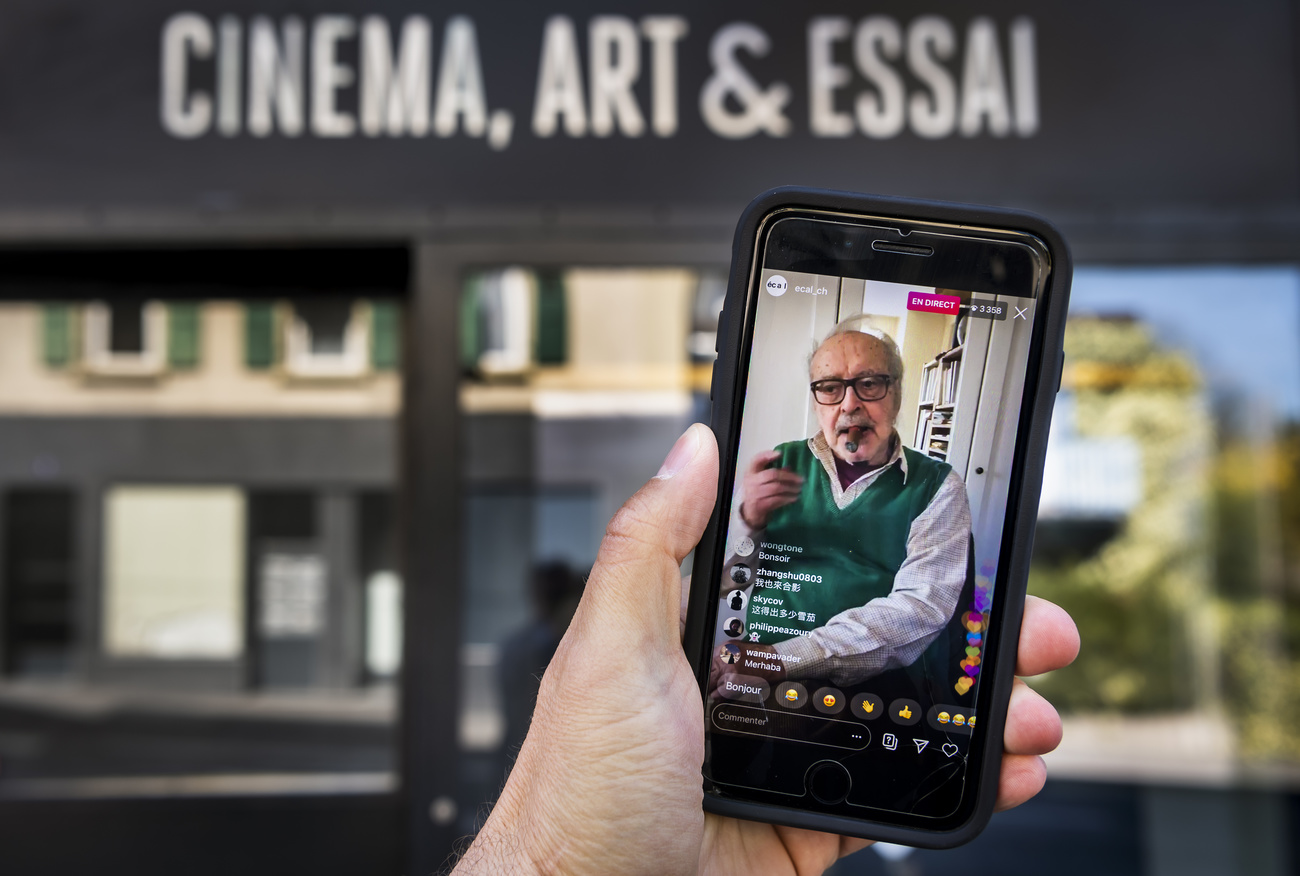
Did he find him? Say God Bye is a film of failures, of reinvention. Little goes to plan. Imbach’s scheme to rent several donkeys to travel along with them on the journey is nixed at the last moment.
Encounters with ordinary people along the way are random, unplanned. One man riding a bike besides a canal recognises Imbach as the director of Ghetto (1997). A nun tries to shoo Imbach out of her convent when he asks her about cinema. Upon showing up at the Cinémathèque Suisse in Lausanne without an appointment, the two are reprimanded by a security guard who doesn’t look happy to be filmed by these men trying to barge unannounced into the archive.
All of this invites the inevitable question: will they find him? Eventually, the two men end their pilgrimage at Godard’s front door in Rolle, clutching a box of cigars (for Jean-Luc) and a bouquet of flowers (for Anne-Marie Miéville). They rap on his door with their knuckles. And, as if by a miracle, the great man emerges, gracious but reserved, in slippers, smoking a cigar, his hair a beautiful mess.
I spoil the ending now because seeing it is what matters: not the surprise that he does, indeed, open the door, but the fact that he’s standing there, one last time. For us too, this is a last chance to say goodbye.
Edited by Virginie Mangin and Eduardo Simantob
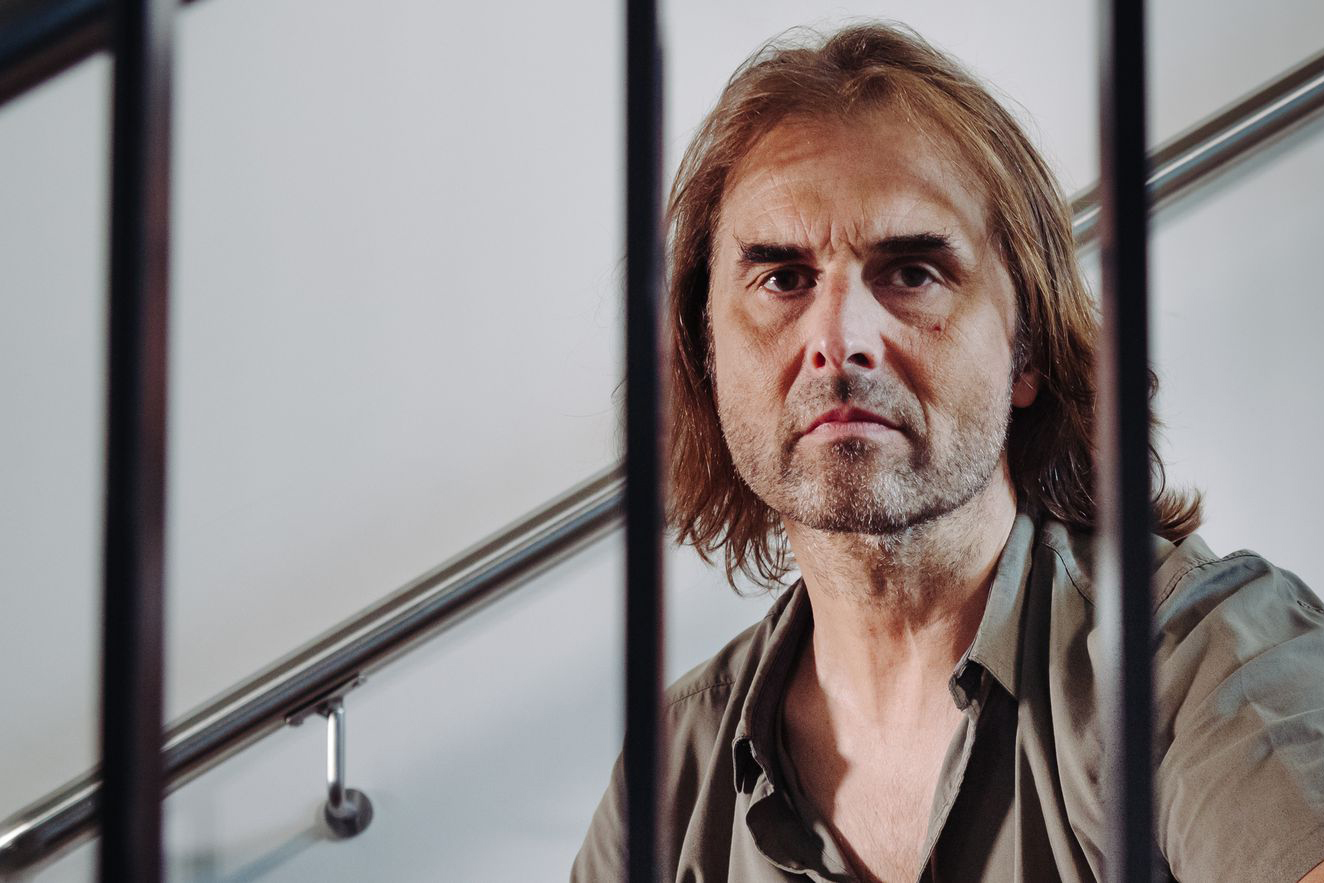
More
Thomas Imbach, a filmmaker unafraid of masculinity

In compliance with the JTI standards
More: SWI swissinfo.ch certified by the Journalism Trust Initiative








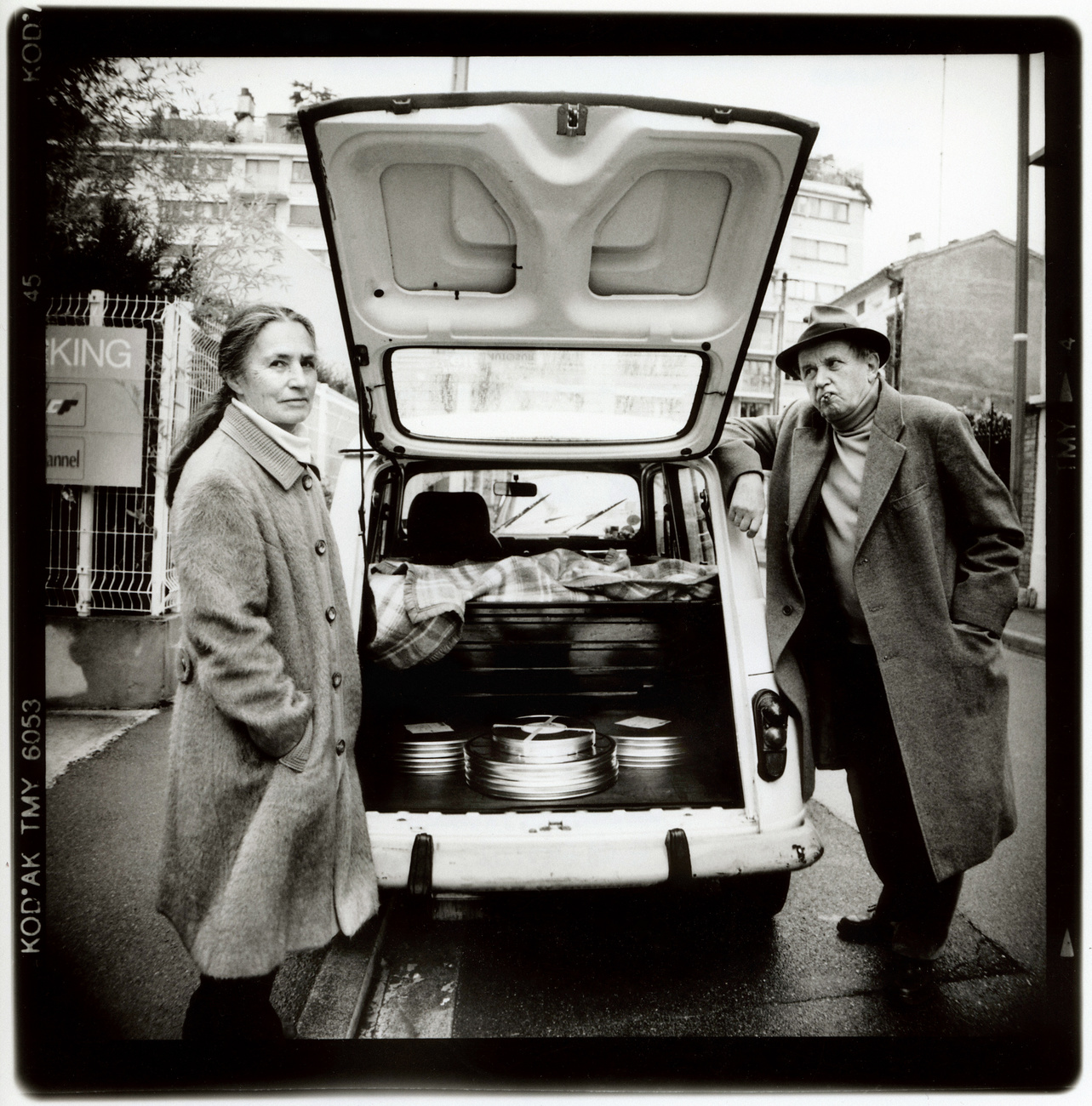

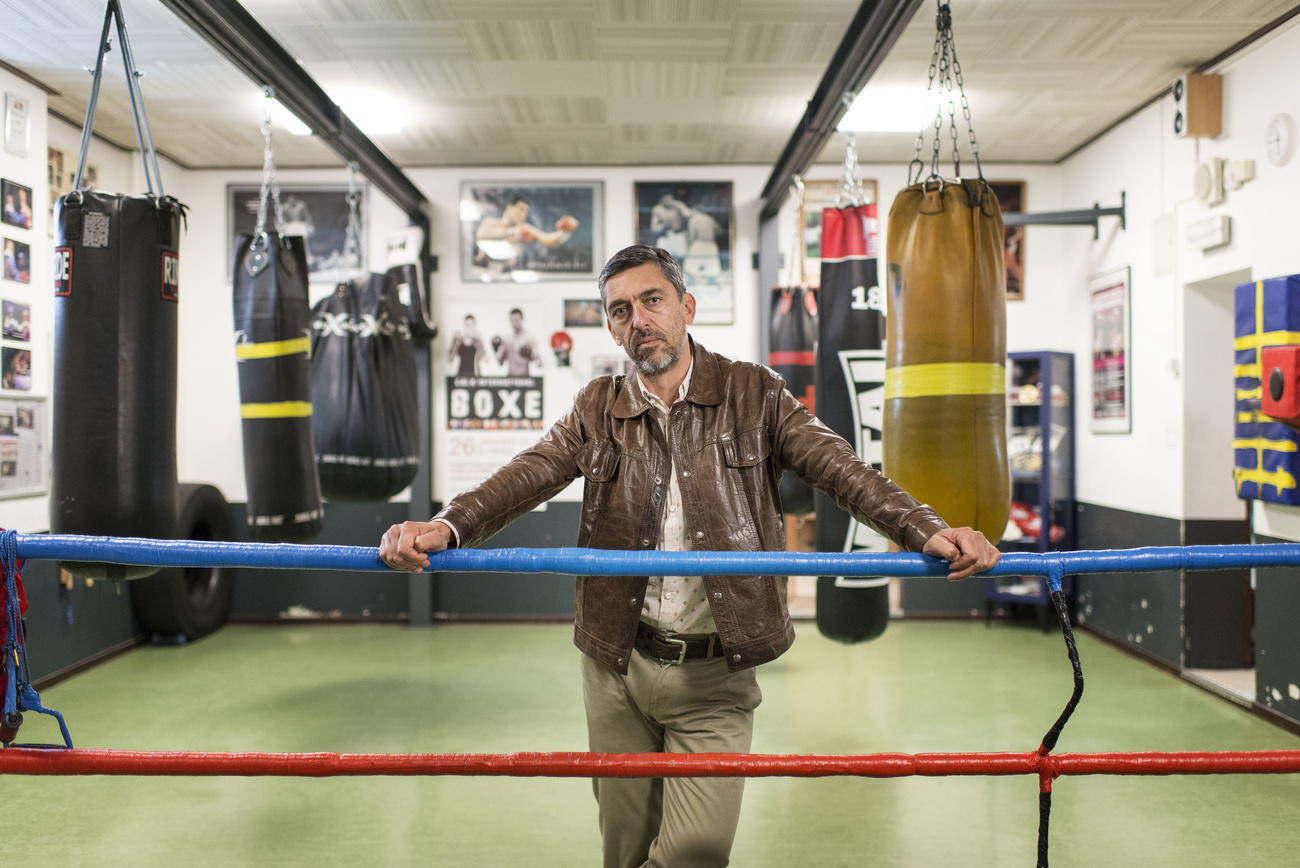
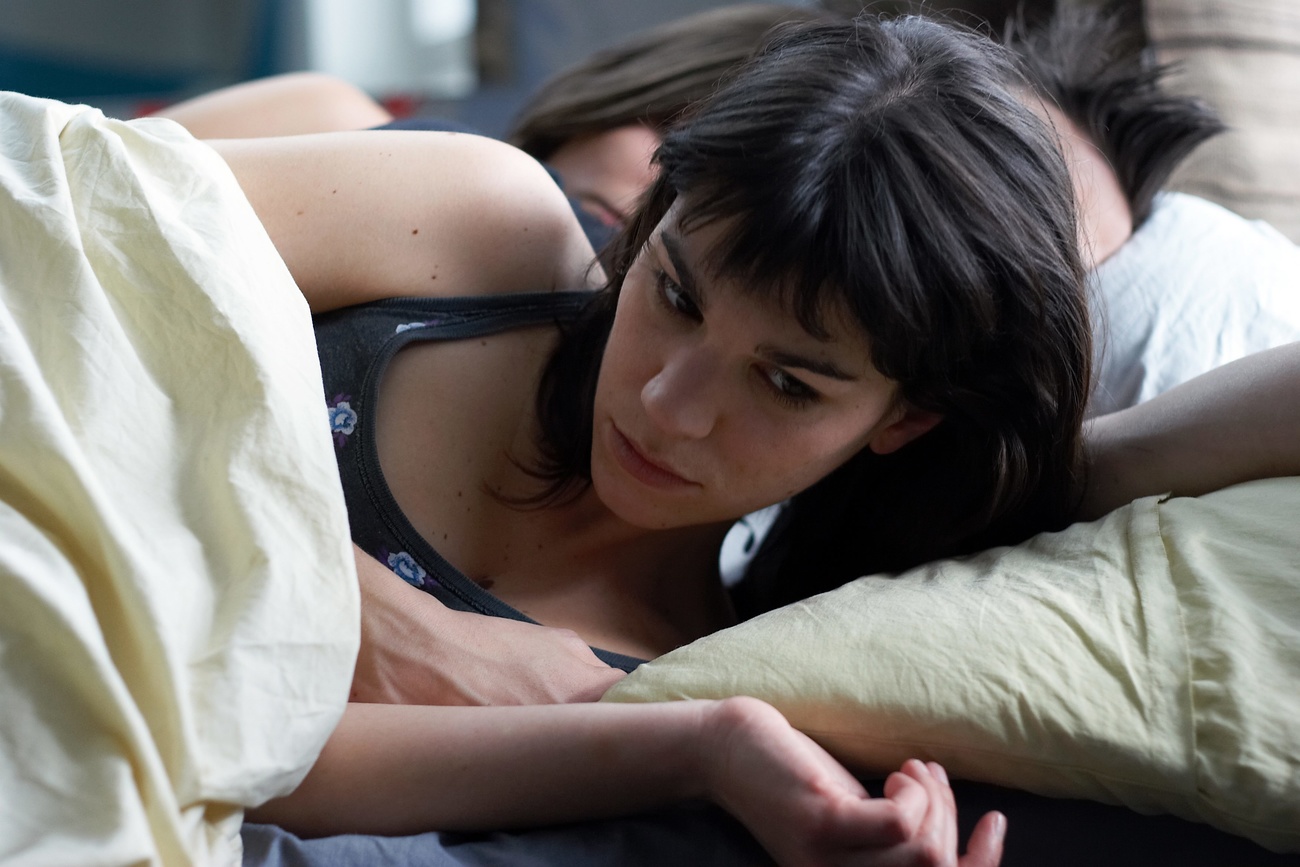
You can find an overview of ongoing debates with our journalists here . Please join us!
If you want to start a conversation about a topic raised in this article or want to report factual errors, email us at english@swissinfo.ch.